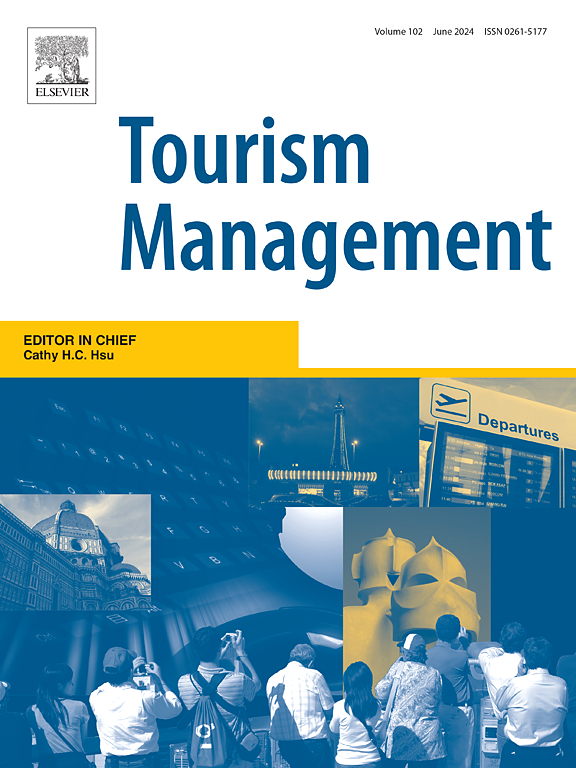开放世界电子游戏中虚拟旅游的真实性:以《塞尔达传说:旷野之息》为例
IF 10.9
1区 管理学
Q1 ENVIRONMENTAL STUDIES
引用次数: 0
摘要
这项研究率先通过开放世界视频游戏的框架对虚拟旅游中的真实体验进行了调查,特别是对《塞尔达传说:荒野之息》进行了研究。本研究运用类型学真实性理论和定性方法,在扎根理论的指导下,将虚拟旅游真实性划分为后后现代、后现代、建构性和存在性四个不同的类别。它进一步阐明了形成这些类别的过程和要素。本文章由计算机程序翻译,如有差异,请以英文原文为准。
Authenticity of virtual tourism in open-world video games: A case study on the Legend of Zelda - Breath of the Wild
This study pioneers the investigation of authentic experiences in virtual tourism through the framework of open-world video games, specifically examining "The Legend of Zelda: Breath of the Wild." Utilizing typological authenticity theory and qualitative methods, this research, guided by grounded theory, identifies and delineates four distinct categories of virtual tourism authenticity: post-postmodern, postmodern, constructive, and existential. It further elucidates the processes and elements that shape these categories.
Theoretically, this work reconciles the dichotomy between 'objective authenticity' and its contrasting 'postmodern authenticity' by introducing the concept of 'referenced authenticity'. Additionally, it underscores how players' projection of agency into the virtual environment fosters constructive authenticity, serving as a bridge from objective to subjective authenticity. Furthermore, the immersive experiences and states of flow that players encounter contribute to a nuanced understanding of existential authenticity in virtual tourism. Practically, this research advocates for synergistic collaborations between the tourism and video game industries, suggesting new strategies for product development and community engagement within the gaming sector. It underscores the potential for virtual tourism to complement and enhance traditional tourism experiences, offering new avenues for exploration and growth in both industries.
求助全文
通过发布文献求助,成功后即可免费获取论文全文。
去求助
来源期刊

Tourism Management
Multiple-
CiteScore
24.10
自引率
7.90%
发文量
190
审稿时长
45 days
期刊介绍:
Tourism Management, the preeminent scholarly journal, concentrates on the comprehensive management aspects, encompassing planning and policy, within the realm of travel and tourism. Adopting an interdisciplinary perspective, the journal delves into international, national, and regional tourism, addressing various management challenges. Its content mirrors this integrative approach, featuring primary research articles, progress in tourism research, case studies, research notes, discussions on current issues, and book reviews. Emphasizing scholarly rigor, all published papers are expected to contribute to theoretical and/or methodological advancements while offering specific insights relevant to tourism management and policy.
 求助内容:
求助内容: 应助结果提醒方式:
应助结果提醒方式:


